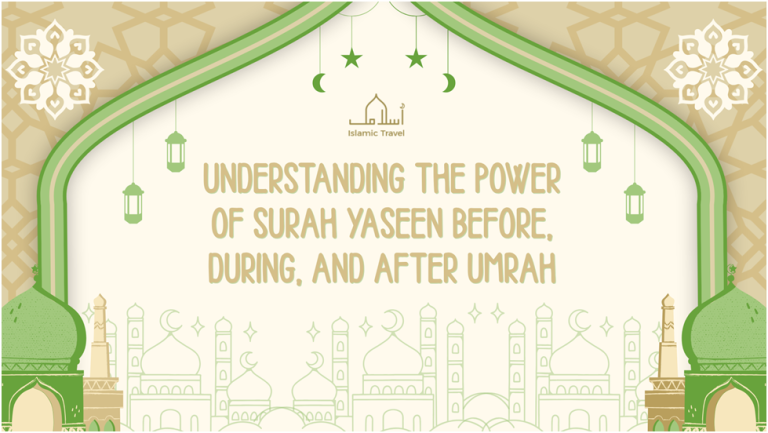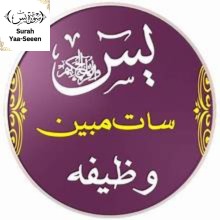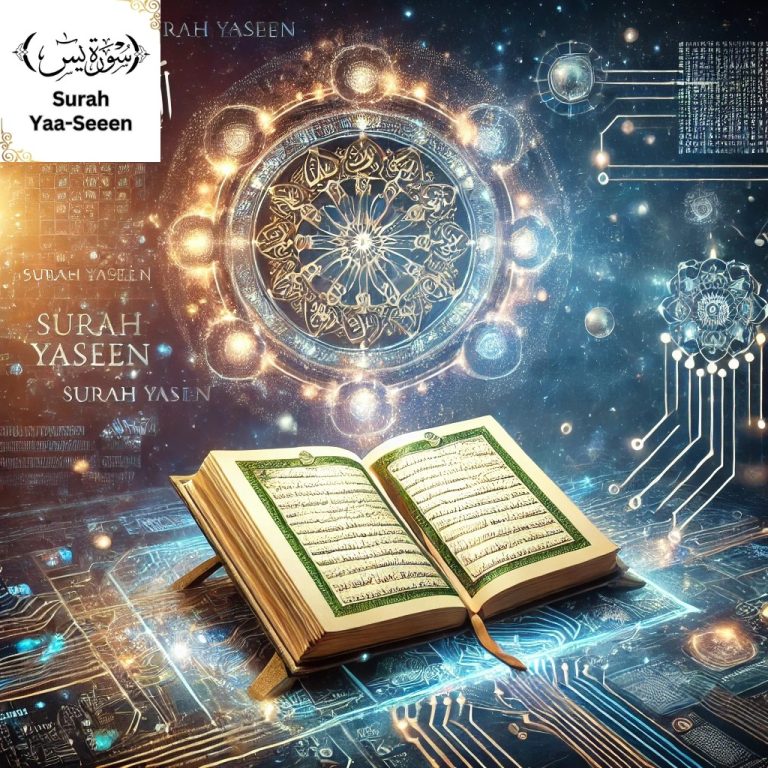Exploring Early 22 Verses of Surah-e-Yaseen in the Lens of Modern Scientific Research and Study’
According to research, heart is the vital organ that pumps the blood throughout the network of arteries and veins to keep your body going. What if your stops to work? You are no more! Right?
Though Quran is itself a miracle and Surah-e-Yaseen, the 36th chapter of the Quran is referred to as a heart of the Holy Quran at many different places by the Prophet and Masoomen of your Creator (Lord).
The verses of Surah Yaseen reflects the themes of faith, support and guidance, integrating the emblems of God in the world and hereafter. When looking into the spectrum of Surah Yaseen and Modern Science, the verses unveil contemporary wisdom. Let’s explore each verse in the lens of modern science to acquire timeless wisdom.
Verse 1-2: The Divine Wisdom
“Yā Sīn. By the wise Quran.”
These are the opening verses of Surah Yaseen, resonating the divine wisdom. Modern science researches consistently reveals the complexity and intelligence inherent in the natural world.
Prophet Muhammad (PBUH) persistently emphasizes to seek knowledge, both spiritual and scientific, so that you can recognize the divine wisdom.
Verse 3: The Role of the Prophet
“Indeed, you, [O Muhammad], are from among the messengers.”
Prophet Muhammad (PBUH) was sent as a messenger to guide mankind. His teachings which were made 1400 years ago, are now anticipating all scientific discoveries. Hazrat Ali (AS) said, “Knowledge enlivens the soul.” (Nahjul-Balagha).
Verse 4: The Straight Path
“On a straight path.”
‘Sirat al-Mustaqim,’ aligns the concept of discipline in life. In the context of modern science, how often do we consider the moral suggestions of our scientific advancements? These are only possible in pursuit of ethical research based on the scientific knowledge.
Verse 5: Revelation from the Almighty
“[This is] a revelation of the Exalted in Might, the Merciful.”
Here modern scientists believe to a higher intelligence. The intricate designs of DNA architecting the blue prints of life are the best example to consider.
Verse 6: Warn Those Who Are Unaware
“That you may warn a people whose forefathers were not warned, so they are unaware.”
This verse emphasizes the importance of awareness and education. In modern times, the rapid spread of information technology requires us to seek knowledge for better survival in the modern world.
Verse 7: The Reality of Disbelief
“Already the word has come into effect upon most of them, so they do not believe.”
This verse highlights the scientific evidence and challenge of disbelief of spiritual truth. In this digital age, have you ever wonder why do some people reject clear evidence and truth.
Verse 8: Chains Around Their Necks
“Indeed, We have put shackles on their necks, and they are to their chins, so they are with heads [kept] aloft.”
According to modern psychological research, spiritual gatherings and continuous meditation in ones life can help to keep them free from the mental shackles that hinders man’s performance in all aspects of life and helps to maintain focus with positive attitude.
Verse 9: A Barrier Before Them
“And We have put before them a barrier and behind them a barrier and covered them, so they do not see.”
The verse refers to the psychological and spiritual barriers that hinder people from accepting the reality. According to Modern neuroscience, emotional factors can cause barriers to understanding.
Verse 10: Equally Ignored Warnings
“And it is all the same for them whether you warn them or do not warn them – they will not believe.”
The disbelievers will remain the same even after many warnings. This is the case in observed in both religious and scientific scenarios by many researchers today.
Verse 11: Noting the Reminder
“You can only warn one who follows the message and fears the Most Merciful unseen. So give him good tidings of forgiveness and noble reward.”
This verse identify the receptiveness. The modern psychologists support the idea that an open mind and those who are willing to change can foster knowledge for personal growth.
Verse 12: Tracking Deeds
“Indeed, it is We who bring the dead to life and record what they have put forth and what they left behind, and all things We have enumerated in a clear register.”
The concept of tacking man’s deeds is parallel in modern digital era of technology when each of our movements and action can easily be tracked, archived and even retrieved. So how does the knowledge of being constantly observed influence our behavior?
Verse 13-14: Referring the Messengers
“And present to them an example: the people of the city, when the messengers came to it.”
The verses portrays the messengers who were rejected by the people and has gone through a timeless lesson throughout the history.
Verse 15: Denial of the Messengers
“When We sent to them two but they denied them, so We strengthened them with a third, and they said, ‘Indeed, we are messengers to you.'”
This verse illustrates the denial that the apostles repeatedly faced. Even in modern science, new ideas face opposition. Just as the idea of the Big Bang.
Verse 16: Duty to Convey the Message
“They said, ‘You are not but human beings like us, and the Most Merciful has not revealed anything. You are only telling lies.'”
The duty of the apostles to convey their message is just like the duty of scientists to share their discoveries, even in the face of disbelief.
Verse 17: The Evidence
“They said, ‘Our Lord knows that we are messengers to you, and we are not responsible except for clear notification.'”
Clear details and backing are both basic keys in both religious and scientific contexts. This verse pushes us to consider that how can we promote understanding while presenting truth.
Verse 18: Rejection and Hostility
“They said, ‘Indeed, we consider you a bad omen. If you do not desist, we will surely stone you, and there will surely touch you from us a painful punishment.'”
The opposition faced by the messengers is similar to the one encountered by scientists.
Verse 19: Response to Rejection
“They said, ‘Your omen is with yourselves. Is it because you were reminded? Rather, you are a transgressing people.'”
This verse reminds us to accept our shortcomings as it is crucial to progress, not only in religion but in every field of life.
Verse 20: The Believer’s Testimony
“And there came from the farthest end of the city a man, running. He said, ‘O my people, follow the messengers.'”
This verse cites the testimony of a believer as it has great importance in itself.
Verse 21: The Truth
“Follow those who do not ask of you [any] payment, and they are [rightly] guided.”
This verse reflects the true guidance irrespective of the expectation of reward. In the spectrum of research, it refers to the open-access research, where knowledge is shared freely for the benefit of humanity worldwide.
Verse 22: Recognizing Divine Origin
“And why should I not worship He who created me and to whom you will be returned?”
The recognition of the creator in the nature and galaxies.
These early verses of Surah-e-Yaseen opens a divine spectrum of knowledge in the light of modern science and Surah-e-Yaseen. Moreover, aligning with the scientific researches along with ethics leading towards holistic development of one’s life.






